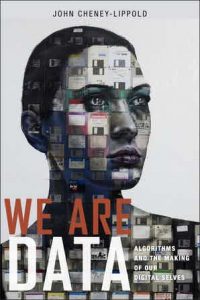
A Meet & Greet with John Cheney-Lippold, University of Michigan associate professor of American culture and digital studies and author of We Are Data: Algorithms and the Making of Our Digital Selves, will take place Monday, November 18, from 3:00 – 4:00 p.m., in Rekhi G09.
Dr. Cheney-Lippold will present “Algorithms, Accidents, and the Imposition of a World of Calculation” on Monday, November 18, at 7:00 p.m. in EERC 103. The lecture is part of the Institute for Policy, Ethics, and Culture’s Algorithmic Culture Series.
Algorithms are everywhere, organizing the near limitless data that exists in our world. Derived from our every search, like, click, and purchase, algorithms determine the news we get, the ads we see, the information accessible to us and even who our friends are. These complex configurations not only form knowledge and social relationships in the digital and physical world, but also determine who we are and who we can be, both on and offline.
The explosive, sometimes accidental transformations performed by statistics and algorithms alter our world to produce “someone else,” no longer the beings we thought we were.
To demonstrate how statistics and algorithms are fundamentally transformative, Cheney-Lippold explores the use of statistics to invalidate the signature of a multimillion-dollar will and to objectify racial categories in the case of People vs. Collins. He also examines the accidental algorithmics that led to the lethal collision of a Tesla autonomous vehicle.
His lecture reorients many of the pressing questions of contemporary culture of algorithmic bias, ethics, and ideas of justice.



